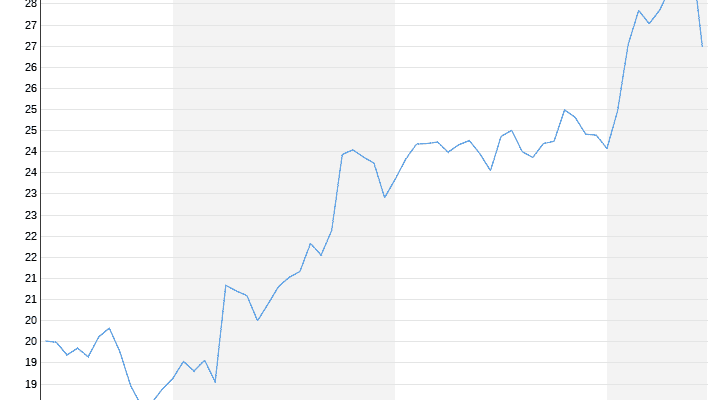Friday 15th January 2021
Dow Jones and Co. are falling
US stock exchanges run out of steam this weekend
Wall Street ends the week at discounts. The mood is being weighed down by concerns about tax increases in the USA and predominantly weak economic data. Then there is the corona pandemic, which is still rampant.
The ongoing corona worries overshadowed the start of the US accounting season on Friday. A slide in oil prices hit the energy sector, while the prospects of major US financial houses failed to calm investors' nerves. The Dow Jones Industrial closed 0.57 percent lower at 30,814.26 points. The leading index thus posted a weekly minus of 0.91 percent. A similar picture as the Dow showed the market breadth on Friday S&P 500, down 0.72 percent to 3768.25 gave in. The technology-heavy Nasdaq 100 the price boards showed one at the end Loss of 0.73 percent to 12,803.93 points at.
The mood on the stock exchanges was affected by a greater reluctance to buy on the part of the Americans in December. As a result, US retailers had surprisingly again achieved lower sales. "Without the components of cars and petrol stations, there is also a minus and the previous month's figures have been revised downwards," said Helaba economist Patrick Boldt. The infection numbers in the USA, which recently reached a new high, are mainly responsible for this. "In addition, the situation on the labor market has a negative impact on consumption." The number of initial jobless claims has recently skyrocketed again.
The planned nearly two trillion dollar economic stimulus package of the future US President Joe Biden did not improve the mood of the investors either. Investors feared that the government might raise taxes in order to finance it. Investors are also concerned about the delivery speed of vaccine manufacturers. "I believe that after all the optimism about vaccines, we are now seeing the reality of a very slow rollout that is taking a heavy toll on business," said trader Juan Perez of Tempus Washington broker. "As long as we no longer have guarantees in the medical field, the markets will not continue to flourish despite the financial support that may be imminent." The US pharmaceutical company Pfizer had announced that it would temporarily reduce the delivery volume of its corona vaccine, which it developed together with BioNTech, to European countries.
Despite the quarterly results, some of which were better than expected, the shares of the US banks JPMorgan, Citigroup and Wells Fargo came under pressure. "Bank stocks have been rising for a few weeks and there is a lot of good news in the prices," said one trader. In addition, JPMorgan boss Jamie Dimon warned that it was extremely uncertain how the economy would go in the short term. Papers from Wells Fargo and Citi fell around around eight percent, while JPMorgan nearly two percent yielded.
Another headache for investors was the resurgence of the pandemic in China. The Beijing government imposed lockdowns on several cities. This could dampen demand from the world's largest oil buyer, warned stockbrokers. The price for the variety Brent from the North Sea slipped 2.0 percent to $ 55.10 per barrel (159 liters). Oil multinational stocks fell on Wall Street ExxonMobil by 3.5 percent, Chevron gave in almost two percent.
. (tagsToTranslate) stock trading (t) Dow Jones (t) Wall Street
